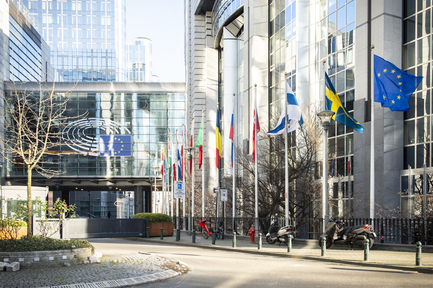On common sense and continuity – Adam Gopnik in The New Yorker:
‘Two weeks ago, in the first round of the Presidential election, Jean-Luc Mélenchon, the far-left candidate, received, almost to the decimal point, the same twenty-plus per cent of the vote that the Communist Party once did. The appeal of far-left ideology, with its idealist cast, is, to the French, particularly to French youth, a cultural constant.
It is, therefore, hugely significant that, throughout the just concluded campaign, Marine Le Pen’s far-right National Rally party—as the National Front party that her father once led has been renamed—had to move sharply centrist in search of popularity. It gave up, however disingenuously, on its promise to leave the European Union, and it was forced to backtrack from Marine Le Pen’s long affiliation with Vladimir Putin. Éric Zemmour, who more overtly represents the racist ideology of the old Front, pur et dur, got less than ten per cent of the vote. With the the traditional French conservative parties having collapsed, from their own incompetence, there is nothing remotely surprising, in French terms, about far-right nationalism trying to pass itself off as something more palatable—any more than there is about that phenomenon in the United States.
When the vote count came in, at around 2 p.m. New York time, Le Pen had managed just around forty-two per cent of the vote, to Macron’s fifty-eight. The fact is that, in difficult circumstances, Macron has managed to win the Presidency twice—a sign that he is resilient, despite being supposedly enfeebled, and that the political reservoir of common sense in France remains. The degree to which the American press—and, to be sure, segments of the French—insists on casting his victory as a kind of moral defeat, is genuinely bewildering. In this country, one would have to go back to such historical—and for some of us, still painful—landslides as Nixon over McGovern and Reagan over Mondale to find equivalents of Macron’s seventeen-per-cent spread in the popular vote. It’s true that some voters chose Macron only because they hated his opponent, but this can be said of every candidate to high office in a democracy.’
Read the article here.
Optimism is often shallow and superficial, activism and idealism even more. There is this tendency to think only of the worst scenarios, whether it’s the US or France or whatever country. Needless to say, all depends on your expectations and I’m not advertising hardcore stoicism here. There is just no reason to pooh-pooh Macron’s victory.
I believe that Le Pen softening her opinions on certain matters (the EU) is nothing but a show, putting some make-up on to hide the scars, but that’s not the point.
The idea that we are in a permanent crisis is just too attractive, too pleasant. Revolution is even in France a theoretical exercise, for the time being. Many voters hate everything, but at the same time they fear real change more than anything else. Maybe that’s why they like the idea of a permanent crisis. It’s part of their tradition.
